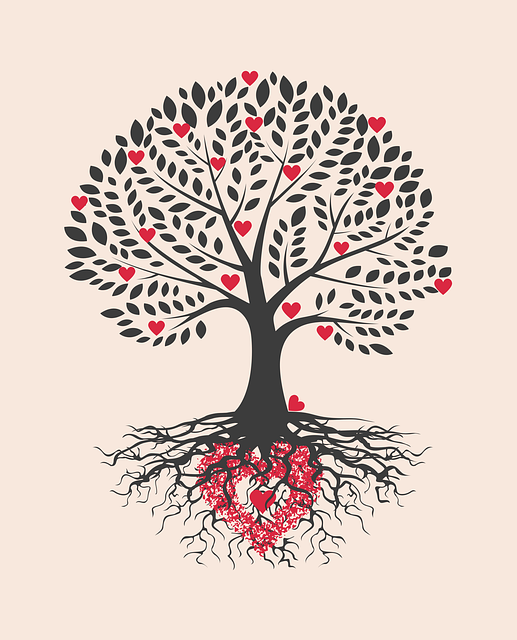
Category: Gilbert Az Relationship Counseling
Gilbert Az Relationship Counseling: A Comprehensive Guide
Introduction
In today’s complex social landscape, the role of relationship counseling has become increasingly vital in fostering healthy connections and resolving conflicts. Among the various approaches, ‘Gilbert Az Relationship Counseling’ stands out as a unique and transformative practice. This article aims to provide an in-depth exploration of this therapeutic method, its impact, and its evolving nature. By delving into its historical roots, global reach, economic implications, technological integrations, regulatory frameworks, and real-world applications, we will uncover the multifaceted world of Gilbert Az Relationship Counseling. Readers will gain valuable insights into how this counseling approach influences personal relationships, contributes to societal well-being, and shapes future mental health practices.
Understanding Gilbert Az Relationship Counseling: Unveiling the Basics
Gilbert Az Relationship Counseling, often referred to as GARC, is a comprehensive therapeutic practice focused on enhancing interpersonal relationships. It draws from a diverse range of psychological theories and cultural perspectives to address the complex dynamics between individuals, couples, families, and communities. The core principle of GARC lies in its belief that healthy relationships are the foundation of individual and collective well-being.
Key Components:
-
Interpersonal Communication: GARC emphasizes open, honest, and respectful communication as a cornerstone of any relationship. Therapists guide clients to identify patterns of interaction, resolve conflicts, and develop assertiveness skills.
-
Emotional Intelligence: This involves helping individuals understand and manage their emotions and empathize with others. GARC therapists teach strategies for emotional regulation, self-awareness, and effective emotional expression.
-
Conflict Resolution: At its heart, GARC is about teaching clients to navigate and resolve conflicts constructively. Therapists assist in identifying the root causes of disputes, negotiating solutions, and fostering mutual understanding.
-
Cultural Sensitivity: Recognizing the impact of cultural background on relationships, GARC incorporates cultural competency. Therapists adapt their approaches to respect diverse values, beliefs, and norms, ensuring inclusive practice.
Historical Context:
The roots of Gilbert Az Relationship Counseling can be traced back to the mid-20th century when the field of psychology began to shift its focus from individual pathologies to social and interpersonal issues. Pioneering psychologists like Carl Rogers and Erich Fromm laid the groundwork for person-centered therapy and humanistic approaches, which emphasized the importance of relationships in mental health. Over time, these theories evolved into more structured therapeutic models, eventually giving rise to GARC as a distinct practice.
In the 1980s, Dr. Gilbert Az, a clinical psychologist, synthesized these various elements and developed his unique approach, combining elements of cognitive-behavioral therapy, humanistic psychology, and cultural anthropology. His innovative methods quickly gained recognition for their effectiveness in treating relationship issues across diverse populations. Today, GARC is practiced globally, with numerous trained professionals and growing support from research and academic institutions.
Global Impact and Trends: A Reaching Therapy
Gilbert Az Relationship Counseling has made a significant global impact, transcending cultural and geographical boundaries to touch the lives of millions. Its influence can be observed across various regions, each adopting and adapting the approach to suit local contexts.
Regional Adoption:
-
North America: In countries like the United States and Canada, GARC has gained popularity as an effective alternative to traditional couple therapy. Many private practices and community clinics offer this service, catering to diverse communities.
-
Europe: European countries have embraced GARC for its holistic approach to relationship issues. The emphasis on cultural sensitivity resonates well with the continent’s diverse populations, leading to its integration into mainstream mental health services.
-
Asia: In Asia, GARC is making inroads, particularly in urban centers like Tokyo and Singapore. The focus on emotional intelligence and communication skills aligns with cultural values of harmony and respect.
-
Middle East and Africa: These regions have seen the implementation of GARC programs within community-based organizations and government initiatives to address relationship challenges prevalent in these societies.
Trends Shaping GARC:
-
Integration of Technology: With the rise of remote therapy sessions, GARC therapists are utilizing video conferencing and online platforms to reach clients worldwide. This trend expands access to counseling while presenting unique opportunities for cultural exchange.
-
Cultural Adaptation: There is a growing emphasis on culturally tailored interventions to address specific relationship issues within diverse communities. Therapists are developing context-specific techniques to ensure the effectiveness of GARC across various cultures.
-
Group Therapy Sessions: Group counseling sessions are gaining popularity, providing individuals with opportunities for peer support and learning from shared experiences. This trend fosters a sense of community and can be particularly beneficial in collectivist cultures.
Economic Considerations: The Financial Landscape of Relationship Counseling
The economic aspects of Gilbert Az Relationship Counseling are multifaceted, involving market dynamics, investment, and the broader impact on healthcare systems.
Market Analysis:
-
Private Practice vs. Clinical Settings: Many GARC therapists operate private practices, offering personalized services to individuals and couples seeking relationship counseling. This sector is characterized by direct client interaction and customized therapy plans. In contrast, clinical settings, including hospitals and community health centers, provide group sessions and specialized programs, often under the guidance of experienced supervisors.
-
Demand and Pricing: The demand for relationship counseling has been steadily rising, driven by increasing awareness of mental health and changing societal norms. GARC therapists command competitive rates, reflecting the specialized nature of their services. However, accessibility can vary based on location and financial resources.
Investment Patterns:
-
Government Funding: In many countries, governments recognize the importance of relationship counseling in preventive healthcare. As a result, they allocate funds to support community-based programs and train mental health professionals in GARC techniques.
-
Private Sector Investment: Private investment in relationship counseling has been growing, with venture capital firms and private equity investors showing interest. This trend has led to the development of innovative therapy platforms and the expansion of existing practices.
Economic Impact:
-
Employment Opportunities: The field of GARC contributes significantly to employment, creating jobs for therapists, counselors, and support staff. It offers a fulfilling career path for individuals passionate about helping others improve their relationships.
-
Cost-Effectiveness: Research suggests that relationship counseling can be cost-effective in the long term. By addressing relationship issues early, societies can potentially reduce the economic burden of more severe mental health problems later in life.
Technological Advancements: Digital Tools for Relationship Therapy
The digital revolution has brought about significant changes in the way Gilbert Az Relationship Counseling is practiced, offering both opportunities and challenges.
Online Therapy Platforms:
-
Remote Sessions: Video conferencing tools enable therapists to conduct sessions remotely, breaking down geographical barriers. This advancement is particularly beneficial for individuals in remote areas or those with limited mobility.
-
Digital Communication Tools: Messaging apps and secure email platforms facilitate ongoing communication between sessions, allowing clients to reflect on their progress and share insights.
Mobile Applications:
-
Relationship Apps: Various mobile applications, developed with GARC principles in mind, offer interactive tools for improving communication, conflict resolution, and emotional well-being. These apps provide accessible resources for individuals seeking support between therapy sessions.
-
Telehealth Integration: With the ongoing global health crisis, many therapists have seamlessly transitioned to telehealth, ensuring continuity of care while adhering to public health guidelines.
Artificial Intelligence (AI) and Data Analysis:
-
Personalized Treatment: AI algorithms can analyze client data to offer personalized treatment plans, predicting outcomes and tailoring interventions accordingly. This technology enhances the efficiency and effectiveness of GARC.
-
Research and Evaluation: AI facilitates large-scale data collection and analysis, enabling researchers to gain insights into relationship dynamics and therapy outcomes. This contributes to evidence-based practice development.
Policy and Regulation: Navigating Legal Frameworks
The practice of Gilbert Az Relationship Counseling is subject to various policies and regulations that govern the delivery of mental health services. These frameworks ensure ethical conduct, client privacy, and quality of care.
Licensing and Certification:
-
Professional Associations: In many countries, therapists practicing GARC must be licensed or certified by relevant professional bodies. These associations set educational and training standards, ensuring competent practice.
-
Specialization Requirements: Some jurisdictions mandate that GARC practitioners have specialized training in relationship counseling, cultural competence, and specific therapeutic techniques.
Ethical Guidelines:
-
Confidentiality and Informed Consent: Strict ethical guidelines govern the handling of client information, ensuring privacy and confidentiality. Therapists obtain informed consent from clients, outlining the nature and goals of therapy.
-
Cultural Sensitivity: Ethical practices emphasize the importance of cultural sensitivity, especially when working with diverse populations. Therapists are guided to respect cultural beliefs and adapt their approaches accordingly.
Regulatory Bodies and Oversight:
-
Government Agencies: Healthcare regulatory agencies oversee the practice of relationship counseling, ensuring compliance with standards and laws. They conduct inspections and investigate complaints against practitioners.
-
Professional Conduct Committees: These committees enforce ethical codes and handle disciplinary matters related to therapist conduct, maintaining public trust in the profession.
Challenges and Criticisms: Overcoming Barriers
Despite its numerous benefits, Gilbert Az Relationship Counseling faces several challenges and criticisms that require thoughtful strategies for resolution.
Main Challenges:
-
Stigma and Misconceptions: One of the primary obstacles is the societal stigma associated with seeking relationship counseling. Many individuals struggle with the perception that therapy is a sign of weakness or failure in their relationships. Overcoming this stigma requires public education campaigns and celebrity endorsements to encourage open dialogue.
-
Accessibility and Cost: The cost of relationship counseling, especially private practice sessions, can be a significant barrier for low-income individuals and families. Subsidies and insurance coverage are essential to ensure accessibility and reduce financial burdens.
-
Therapeutic Training: Ensuring qualified and trained therapists is crucial for the effectiveness of GARC. In some regions, there may be a shortage of professionals with specialized skills, leading to inconsistent quality of care. Addressing this requires robust training programs and ongoing professional development.
Criticisms and Proposed Solutions:
-
Cultural Insensitivity: Some critics argue that GARC may inadvertently perpetuate cultural stereotypes or overlook context-specific issues. To counter this, therapists must undergo extensive cultural sensitivity training and adapt their practices to respect local customs and beliefs.
-
Lack of Scientific Evidence: While GARC has shown positive outcomes, some researchers question its evidence base. Rigorous research studies, including controlled trials and meta-analyses, can help strengthen the scientific foundation of this therapeutic approach.
-
Integration with Traditional Medicine: Critics suggest that GARC should be better integrated into primary healthcare systems. Collaboration between mental health professionals and primary care providers can ensure comprehensive patient care and reduce the stigma associated with therapy.
Case Studies: Real-World Applications of GARC
Exploring successful case studies provides valuable insights into the practical application and impact of Gilbert Az Relationship Counseling.
Case Study 1: Urban Community Center
Setting: A community center in a diverse, urban neighborhood implemented a GARC program to address relationship issues prevalent among young adults.
Methodology: The program offered group therapy sessions focused on communication skills, conflict resolution, and emotional intelligence. Facilitators used role-playing exercises and interactive workshops tailored to the participants’ cultural backgrounds.
Outcomes: After six months, participants reported significant improvements in their relationships with partners, family members, and friends. Conflict resolution skills increased, and individuals expressed better emotional understanding and self-awareness. The program also fostered a sense of community, leading to ongoing support networks among participants.
Case Study 2: Rural School District
Context: A rural school district faced challenges with adolescent relationships and mental health. They introduced GARC-based workshops for students and parents, aiming to promote healthy communication and problem-solving skills.
Implementation: The workshops focused on topics such as peer pressure, assertiveness, and managing emotions. Therapists conducted sessions at the school and in nearby community centers, ensuring accessibility.
Impact: Results showed a decrease in disciplinary incidents related to interpersonal conflicts among students. Parents reported improved communication with their children, leading to stronger family connections. The program also increased awareness of mental health resources available to youth.
Future Prospects: Looking Ahead in GARC
The field of Gilbert Az Relationship Counseling is poised for exciting developments and growth opportunities in the years ahead.
Emerging Trends:
-
Cultural Fusion Therapy: With increasing global connectivity, therapists may integrate elements from various cultural therapeutic traditions to create hybrid approaches tailored to diverse clients.
-
AI-Assisted Therapy: The integration of AI will continue to evolve, offering personalized treatment plans and enhancing the efficiency of therapy sessions. Virtual reality (VR) technology could also be utilized for immersive therapeutic experiences.
-
Community-Based Programs: There is a growing emphasis on community engagement, with GARC initiatives being integrated into local support systems, schools, and workplace wellness programs.
Strategic Considerations:
-
Global Collaboration: Researchers and practitioners should foster international collaborations to share knowledge, adapt best practices, and address global relationship challenges.
-
Policy Advocacy: Advocating for supportive policies and increased funding will ensure the continued growth and accessibility of GARC services.
-
Diversifying Training Programs: Expanding training opportunities to accommodate diverse cultural backgrounds and therapeutic orientations will enhance the workforce and improve service delivery.
Conclusion: A Transformative Approach to Relationships
Gilbert Az Relationship Counseling has emerged as a powerful tool for fostering healthy connections and resolving relationship conflicts worldwide. Its comprehensive approach, rooted in historical psychological theories, has evolved to meet the diverse needs of individuals and communities. Through global adoption, technological advancements, and adaptive practices, GARC continues to shape mental health services, empowering people to navigate their relationships with greater confidence and understanding.
As we look to the future, the potential for GARC to contribute to a more connected and resilient society remains promising. By addressing relationship issues at their core, this counseling approach can lead to improved well-being, stronger communities, and a more compassionate global culture. The ongoing exploration and refinement of Gilbert Az Relationship Counseling will undoubtedly leave a lasting impact on the field of mental health and human relationships.
FAQ Section: Answering Common Questions
Q: What is the primary goal of GARC?
A: The primary goal of Gilbert Az Relationship Counseling (GARC) is to enhance interpersonal relationships by teaching effective communication, emotional intelligence, conflict resolution skills, and cultural sensitivity. It aims to improve connection and understanding between individuals, couples, families, and communities.
Q: How does GARC differ from traditional couple therapy?
A: GARC differs from traditional couple therapy in its broader scope and adaptability. While traditional therapy often focuses on resolving conflicts within a couple, GARC considers the wider social and cultural context of relationships. It caters to individuals, couples, families, and community groups, offering personalized interventions based on unique needs and challenges.
Q: Can GARC be effective for long-term relationship maintenance?
A: Absolutely! GARC is not just about resolving immediate crises; it equips individuals with lifelong skills for healthy relationships. Regular practice and ongoing support can help maintain positive connections, navigate life transitions, and prevent relationship issues from escalating over time.
Q: Is seeking relationship counseling a sign of weakness?
A: Not at all! Seeking relationship counseling is a sign of strength and self-awareness. It demonstrates a willingness to invest in personal growth and connection. Many successful individuals and couples turn to GARC to enhance their relationships and well-being.
Q: How can I find a qualified GARC therapist?
A: To find a qualified GARC therapist, you can start by asking for referrals from trusted sources like healthcare providers or local community centers. Professional associations and online directories can also help. Ensure the therapist is licensed, certified, and has experience working with your specific needs or cultural background.











